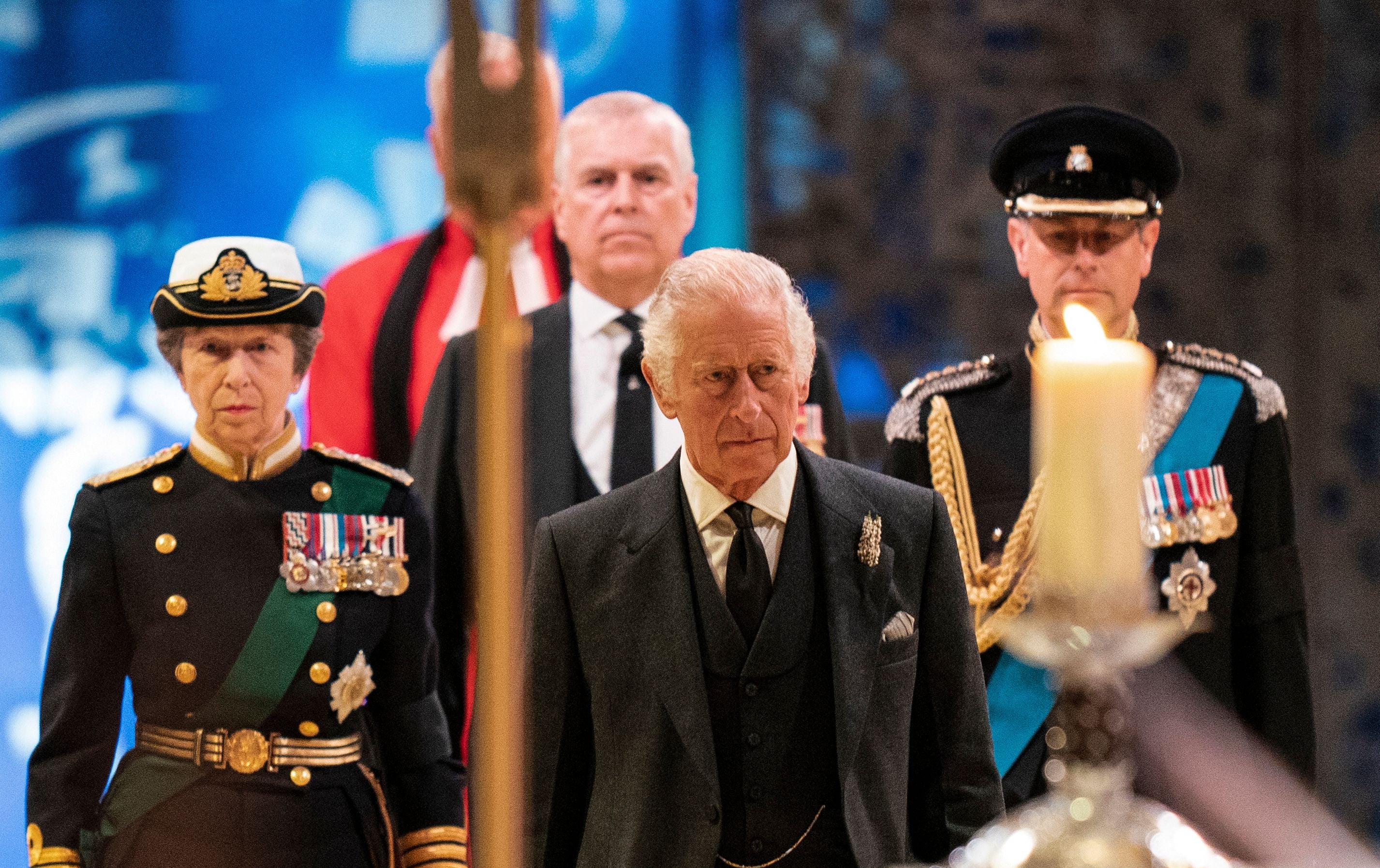How does inheritance work in the royal family?
King Charles III received a vast inheritance from his mother, the late Queen Elizabeth II
Inheritance can be a tricky subject, particularly because it involves all the emotions that come with a death in the family, dealing with inheritance tax and splitting what is left among multiple family members if the dearly departed’s will is unclear.
But as complicated as they are for regular people, inheritance among the British royal family can be mysterious due to monarchs’ wills being sealed for decades after their death.
When Queen Elizabeth II died last September, her eldest son, the now-King Charles III, inherited more than just the Crown.
The exact value of how much Charles inherited is unclear, but at least one of the assets he was given is the Queen’s private estate, the Duchy of Lancaster, which is valued at more than £650 million.
But the King has reportedly stirred up “some resentment” among his younger siblings, the Duke of York, the Princess Royal and the Duke of Edinburgh over their late mother’s inheritance.
Prince Andrew in particular is said to be in “despair” that Charles has not shared out the late Queen’s inheritance. As a non-working royal, he does not receive handouts from the Sovereign Grant to cover costs, unlike Princess Anne and Prince Edward.
Here’s everything you need to know about how inheritance works in the royal family.
Who inherits the Queen’s wealth?
King Charles is the sole beneficiary of the Queen’s wealth, including her £650 million estate.
On top of this, she amassed tens of millions of pounds in her own cash and assets, mainly from art and racehorses. While the true value of her wealth is not known, the Sunday Times Rich List estimated in 2011 that her private fortune was £370 million.
Why is there only one beneficiary?
In 1993, a deal was negotiated between the Crown and John Major’s government in 1993 that effectively exempts the monarch from paying inheritance tax.
If this were not the case and the regular inheritance tax rule applied, Charles would have to pay 40 per cent inheritance tax on anything he inherits over a £325,000 threshold – which would have meant paying millions to the Treasury.
However, the deal struck with Major’s government was part of a “Memorandum of Understanding on Royal Taxation” that states some royal assets are held by the monarch as “Sovereign rather than as a private individual”.
It says that it is therefore “clearly… inappropriate for inheritance tax to be paid in respect of such assets”.
The memorandum also exempts the monarch’s private property from inheritance tax when it is being passed down to the next sovereign.
“In relation to assets which can be properly regarded as private, the arrangements provide that inheritance tax will not be paid on gifts or bequests from one Sovereign to the next, but will be payable on gifts and bequests to anyone else,” it says.
Therefore, anything that Charles has inherited from his mother is not subject to inheritance tax.
Will Charles split the inheritance between his siblings?
It appears that the King has no intention of sharing his vast inheritance with his siblings.

However, Anne and Edward are working royals and can rely on handouts from the Sovereign Grant.
But Andrew, who stepped down as a working royal in 2019 over his links to convicted paedophile Jeffrey Epstein, relies on the King’s generosity to fund his lifestyle.
The Mail on Sunday quoted a friend of the duke’s as saying: “What’s he meant to do? Go cap in hand to his older brother to keep a roof over his head? It’s a disaster.”
It comes after Andrew reportedly told friends that he may have to move out of the Royal Lodge in Windsor – where he has lived for nearly 20 years – if the King cuts his £249,000 annual allowance cut from April.
The Independent has contacted Buckingham Palace for comment.
What are the royal family’s main sources of income?
The royal family have three main sources of income, which are the Crown estate, the Duchy of Lancaster and the Duchy of Cornwall.
The Crown estate, a real estate portfolio reportedly valued at around £15 billion, includes Buckingham Palace, the Royal Lodge, Windsor Castle and some other royal properties, as well as large parts of central London. In fact, the monarch is one of the largest property owners in the West End.
It also includes the seabed and half the foreshore around some parts of England, Wales and Northern Ireland.
However, the royal family are not true owners of the Crown estate and act more like custodians of the portfolio. Profits from the estate go to the UK government, and a proportion of the income is returned to the royals in the form of the Sovereign Grant.
As mentioned before, the Duchy of Lancaster is estimated to be worth £650 million. The estate will pay the King an income of around £24 million, as it did the late Queen.
But before he ascended the throne, Charles enjoyed the Duchy of Cornwall as the former Prince of Wales. He has now passed this estate to his eldest son, Prince William.
The duchy covers more than 52,000 hectares of land across 20 counties in England and Wales. Its assets were valued at more than £1 billion in March 2022 and paid Charles an income of £21 million.
Join our commenting forum
Join thought-provoking conversations, follow other Independent readers and see their replies
Comments

Bookmark popover
Removed from bookmarks